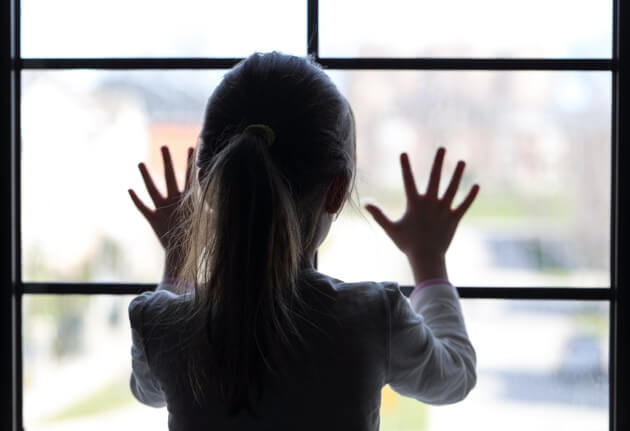8 Steps To Lasting Co-Parenting Success After Divorce
 By Rosalind Sedacca, CDC
By Rosalind Sedacca, CDC
Effective co-parenting after divorce takes awareness, commitment and skills. Here are 8 Steps to getting it right for the children you love.
Parenting before and after divorce can be complex, frustrating and confusing. However, every day parents around the world are coping with the challenges of raising happy, well-adjusted children. There are many factors that influence your effectiveness as a parent. In this article we’ll review some of the major components of the pre- and post-divorce parenting success formula.
Step 1: ATTITUDE
Attitude plays a big part in the success of any divorce with children. If you approach your divorce with a commitment to making it as positive an experience as possible for the children you love, you are on your way to succeeding.
What attitude are you conveying about your divorce? Are you filled with negativity? Are your days consumed with a “poor me” state of consciousness? Are you attracting and spending time with others who share those sentiments? If so, it’s time for an overhaul in your thinking and attitude.
A Child-Centered Divorce is created over weeks, months and years of attention to positive parenting. It’s never too late to start regardless of how long you have been divorced. The decisions you make today will affect the relationships within your family tomorrow and for decades to come.
Step 2: PERCEPTIONS
The world is what we perceive it to be. Whether you believe it’s good or bad – you will be right – and create an outcome to justify your belief.
If you perceive yourself to be a victim in your divorce, you will focus on evidence proving that true. If instead you take your divorce as a life experience to learn from, you will derive much value from the divorce, despite the pain and sadness involved. You will also accept responsibility for the role you played in the process and be more willing to contemplate new ways to live that will bring more positive results.
Sadly, it’s through challenging experiences that we grow and learn the most from life. Are you uncovering meaningful lessons for you?
Step 3: LOOK FOR THE GIFT:
There are always lessons to be learned from painful experiences. If you perceive those lessons as “gifts” to you – wisdom and opportunities you will never have otherwise experienced – you can move on from your divorce a better, stronger, wiser person. There is always a gift to be received … if you look for it.
Step 4: RESPECTFUL PARENTING
Getting past your divorce is but a small piece of the divorce puzzle if you are a parent. Working through the challenges of creating successful communication with your ex is a goal to be worked on continuously. Keep your children in mind before making any decisions related to their well-being and you will stay on course.
Because you and your former spouse will be parenting your children for many years – and decades to come – it makes sense to start off on the best possible course. The first step is to develop a respectful relationship with your ex. Remember that is your child’s other parent whom they love. Treat your former spouse with that level of awareness and dignity in all your communication and they are more likely to return the same level of respect to you. Changes may not happen overnight. But with patience and persistence things can and will improve.
Step #5: LEARN TO LET GO
If you truly want to move on from your divorce you must learn to let go of negative emotions that hold you hostage. These include anger, resentment, blame, jealousy, hatred and anxiety. Of course, there is a time and place for experiencing those emotions. Feel them; mourn the dream that turned sour. Then make a decision to let them go. Do this for your benefit – not on behalf of your former spouse.
Negative emotions can hold you in limbo and suck the life out of you. You get stuck in a place that’s painful to experience and it makes you unpleasant to be around. For the sake of your children – if not for yourself – decide to let it all go. Determine to move on. It’s not always easy to do, but the contrast of living in your pain is not an easy place to be either. Which state would you prefer?
Step #6: FORGIVENESS
The big step after letting go of your negative emotions is learning to forgive. This starts with you. Forgive any mistakes you made related to your marriage or divorce. Forgive your poor choices, immaturity or naivety. Acknowledge yourself as someone who is open to personal growth, change and transformation. Feel your worth and start doing things that express self-love.
Next take the big step to forgive your ex. This does not mean condoning their actions or hurtful behavior. It means you are determined not to let it affect you any longer.
You are cutting the emotional cords that bind you and keep you from enjoying new possibilities in your life. Behind forgiveness is freedom. Don’t you want to be free of the pain, hurt, insecurity and rage that previously had power over you? Cut the cord and be free!
Step #7: MAKE TIME FOR YOU!
One of the healthiest things you can do following divorce is making time for you! This is a gift that pays off on many levels in your life. Think about reinventing yourself in ways that excite you. Take a yoga or meditation class. Pursue a new hobby. Volunteer at an animal shelter. Start a craft or business enterprise that excites you. Make time for strolls in nature, physical exercise, watching your diet or treating yourself to a message.
When you nurture yourself, you are more able to give your children your total attention when with them. During and after divorce your kids need you more than ever. You can’t be there for them if you’re not there for yourself to renew your spirits. It’s a formula that works if you play your part.
Do the best you can. Be the best parent you can be. Take it day by day. If you need help, reach out for it without embarrassment or shame. You’re not alone. And the help you need is out there for you!
Step #8: HANDLE YOUR CONFLICTS
Disagreements are inevitable between divorced parents. Develop good communication skills and you will minimize the damage that results.
When a conflict with your ex arises, be a good listener. Most disagreements come about from misunderstanding. Often one of you made an assumption that was erroneous and feelings got hurt.
Get into the habit of paraphrasing what you think you heard and ask for clarity. Apologize if you made an error or omission. Be understanding if your ex made the error. Try not to put them on the defensive or jump to negative conclusions.
Find a middle ground that you both can live with. Trade off getting to “win” the discussion or issue at hand. Agree to disagree if necessary. Learn to move on.
Bonus Step: TAKE THE HIGH ROAD
Dr. Phil often says, “Every relationship needs a hero.” Be the one who can step up and look beyond the ego gratification of being right or getting your way. Why? Because it’s in the best interest of your children for you to minimize conflict. That doesn’t mean you become a door-mat. Stand up for your values. If concession won’t harm your children’s overall well-being, consider whether you can let go. It’s not about being “right.” It’s about being the best parent for the kids you love.
If you must stand firm, do it without “I told you so” put downs. Make your points using “I” language – stating your feelings. Avoid “you” language that’s insulting, insensitive and usually puts the other party on the defensive. It takes a mature, aware adult to take the high road when a conflict is taking place. Be that person. Be a catalyst for behavior you can be proud of. After all, you’re a role model for your kids. In the future your children will remember who made them feel secure, protected and loved. They’ll acknowledge you for it. Wait and see!
Follow these 8 Steps as well as the Bonus and life after divorce can be more successful, fulfilling, rewarding than you ever imagined.
* * *
Rosalind Sedacca, CDC, is a Divorce & Parenting Coach and Founder of the Child-Centered Divorce Network for parents. She is also the creator of the Mastering Child-Centered Divorce 10-hr Audio Coaching Program and author of the internationally-acclaimed ebook, How Do I Tell the Kids about the Divorce? A Create-a-Storybook Guide To Preparing Your Children — With Love! To get her free ebook on Post-Divorce Parenting: Success Strategies For Getting It Right! along with access to her coaching services, programs and other valuable resources on divorce and parenting issues, visit: http://www.childcentereddivorce.com.
 By Sean Smallwood, Esq.
By Sean Smallwood, Esq.